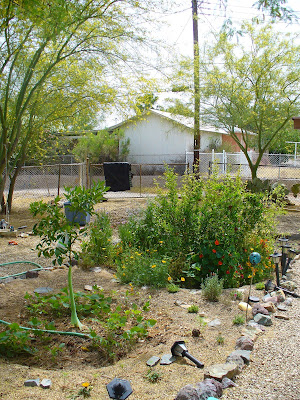Punished by Rewards: The Trouble with Gold Stars, Incentive Plans, A's, Praise, and Other Bribes
The Homework Myth: Why Our Kids Get Too Muchof a Bad Thing
Beyond Discipline: From Compliance to Community
The Schools Our Children Deserve: Moving Beyond Traditional Classrooms and "Tougher Standards"
I've only actually read The Schools Our Children Deserve as I intended on sending it to the superitendent of the local school. In it Kohn addresses many of the issues his other books discuss.
Back to Gatto...
School wreaks havoc on human foundations in at least eight substantive ways so deeply buried few notice them, and fewer still can imagine any other way for children to grow up:1) The first lesson schools teach is forgetfulness; forcing children to forget how they taught themselves important things like walking and talking. This is done so pleasantly and painlessly that the one area of schooling most of us would agree has few problems is elementary school—even though it is there that the massive damage to language-making occurs. Jerry Farber captured the truth over thirty years ago in his lapidary metaphor "Student as Nigger" and developed it in the beautiful essay of the same name. If we forced children to learn to walk with the same methods we use to force them to read, a few would learn to walk well in spite of us, most would walk
indifferently, without pleasure, and a portion of the remainder would not become
ambulatory at all. The push to extend "day care" further and further into currently unschooled time importantly assists the formal twelve-year sequence, ensuring utmost tractability among first graders.
2) The second lesson schools teach is bewilderment and confusion. Virtually nothing selected by schools as basic is basic, all curriculum is subordinate to standards imposed by behavioral psychology, and to a lesser extent Freudian precepts compounded into a hash with "third force" psychology (centering on the writings of Carl Rogers and Abraham Maslow). None of these systems accurately describes human reality, but their lodgement in university/business seven-step mythologies makes them dangerously invulnerable to common-sense criticism.
None of the allegedly scientific school sequences is empirically defensible. All lack evidence of being much more than superstition cleverly hybridized with a body of borrowed fact. Pestalozzi’s basic "simple to complex" formulation, for instance, is a
prescription for disaster in the classroom since no two minds have the same
"simple" starting point, and in the more advanced schedules, children are frequently more knowledgeable than their overseers—witness the wretched record of public school computer instruction when compared to self-discovery programs undertaken informally. Similarly, endless sequences of so-called "subjects" delivered by men and women who, however well-meaning, have only superficial knowledge of the things whereof they speak, is the introduction most kids get to the liar’s world of institutional life. Ignorant mentors cannot manage larger meanings, only facts. In this way schools teach the disconnection of everything....(more)
Pathology As A Natural ByproductWith these eight lessons in hand you should have less trouble seeing that the social pathologies we associate with modern children are natural byproducts of our modern system of schooling which
produces:
- Children indifferent to the adult world of values and accomplishment, defying the universal human experience laid down over thousands of years that a close study of grown-ups is always the most exciting and one of the most necessary occupations of youth. Have you noticed how very few people, adults included, want to grow up anymore? Toys are the lingua franca of American society for the masses and the classes.
- Children with almost no curiosity. Children who can’t even concentrate for long on things they themselves choose to do. Children taught to channel-change by a pedagogy employing the strategy "and now for something different," but kids who also realize dimly that the same damn show is on every channel.
Empty Children
Here is my recipe for empty children. If you want to cook whole children, as I suspect we all do, just contradict these stages in the formula:
- Remove children from the business of the world until time has passed for them to learn how to self-teach.
- Age-grade them so that past and future both are muted and become irrelevant.
- Take all religion out of their lives except the hidden civil religion of appetite, and positive/negative reinforcement schedules.
- Remove all significant functions from home and family life except its role as dormitory and casual companionship. Make parents unpaid agents of the State; recruit them into partnerships to monitor the conformity of children to an official agenda.
- Keep children under surveillance every minute from dawn to dusk. Give no private space or time. Fill time with collective activities. Record behavior quantitatively....(more)
At least nine major assumptions about the importance of government schooling must be acknowledged as false before you can get beyond the fog of ideology into the clear air of education. Here they are:
1) Universal government schooling is the essential force for social cohesion. There is no other way. A heavily bureaucratized public order is our defense against chaos and anarchy. Right, and if you don’t wipe your bum properly, the toilet monster will rise out of the bowl and get you.
2) The socialization of children in age-graded groups monitored by State agents is essential to learn to get along with others in a pluralistic society. The actual truth is that the rigid c0mpartmentalizations of schooling teach a crippling form of social relation: wait passively until you are told what to do, never judge your own work or confer with associates, have contempt for those younger than yourself and fear of those older. Behave according to the meaning assigned to your class label. These are the rules of a nuthouse. No wonder kids cry and become fretful after first grade....(more)
The Art Of Driving
Now come back to the present while I demonstrate that the identical trust placed in ordinary people two hundred years ago still survives where it suits managers of our economy to allow it. Consider the art of driving, which I learned at the age of eleven. Without everybody behind the wheel, our sort of economy would be impossible, so everybody is there, IQ notwithstanding.
With less than thirty hours of combined training and experience, a hundred million people are allowed access to vehicular weapons more lethal than pistols or rifles. Turned loose without a teacher, so to speak. Why does our government make such presumptions of competence, placing nearly unqualified trust in drivers, while it maintains such a tight grip on near-monopoly state
schooling?
An analogy will illustrate just how radical this trust really is. What if I proposed that we hand three sticks of dynamite and a detonator to anyone who asked for them. All an applicant would need is money to pay for the explosives. You’d have to be an idiot to agree with my plan—at least
based on the assumptions you picked up in school about human nature and human competence.
And yet gasoline, a spectacularly mischievous explosive, dangerously unstable and with the intriguing characteristic as an assault weapon that it can flow under locked doors and saturate bulletproof clothing, is available to anyone with a container. Five gallons of gasoline have the
destructive power of a stick of dynamite. The average tank holds fifteen gallons, yet no background check is necessary for dispenser or dispensee. As long as gasoline is freely available, gun control is beside the point. Push on. Why do we allow access to a portable substance capable of incinerating houses, torching crowded theaters, or even turning skyscrapers into infernos? We haven’t even considered the battering ram aspect of cars—why are novice operators allowed to command a ton of metal capable of hurtling through school crossings at up to two miles a minute? Why do we give the power of life and death this way to everyone?...(more)
The Schools Of Hellas
Wherever it occurred, schooling through the eighteenth and nineteenth centuries (up until the last third of the nineteenth) heavily invested its hours with language, philosophy, art, and the life of the classical civilizations of Greece and Rome. In the grammar schools of the day, little pure grammar as we understand it existed; they were places of classical learning. Early America rested easily on a foundation of classical understanding, one subversive to the normal standards of British class society. The lessons of antiquity were so vital to the construction of every American institution it’s
hardly possible to grasp how deep the gulf between then and now is without knowing a little about those lessons. Prepare yourself for a surprise.
For a long time, for instance, classical Athens distributed its most responsible public positions by lottery: army generalships, water supply, everything. The implications are awesome— trust in everyone’s competence was assumed; it was their version of universal driving. Professionals existed
but did not make key decisions; they were only technicians, never well regarded because prevailing opinion held that technicians had enslaved their own minds. Anyone worthy of citizenship was expected to be able to think clearly and to welcome great responsibility. As you reflect on this, remember our own unvoiced assumption that anyone can guide a ton of metal traveling at high speed with three sticks of dynamite sloshing around in its tanks.
When we ask what kind of schooling was behind this brilliant society which has enchanted the centuries ever since, any honest reply can be carried in one word: None. After writing a book searching for the hidden genius of Greece in its schools, Kenneth Freeman concluded his unique study The Schools of Hellas in 1907 with this summary, "There were no schools in Hellas." No place boys and girls spent their youth attending continuous instruction under command of strangers. Indeed, nobody did homework in the modern sense; none could be located on standardized tests. The tests that mattered came in living, striving to meet ideals that local tradition imposed. The word sköle itself means leisure, leisure in a formal garden to think and reflect. Plato in The Laws is
the first to refer to school as learned discussion...(more)
The Fresco At Herculaneum
Sparta, Athens’ neighbor, was a horse of a different color. Society in Sparta was organized around the concept of cradle-to-grave formal training. The whole state was a universal schoolhouse, official prescriptions for the population filled every waking minute and the family was employed as a convenience for the state. Sparta’s public political arrangements were an elaborate sham, organized nominally around an executive branch with two legislative bodies, but ultimate decision-making was in the hands of ephors, a small elite who conducted state policy among themselves. The practical aspect of imitation democracy figures strongly in the thought of later social thinkers
such as Machiavelli (1532) and Hobbes (1651), as well as in minds nearer our own time who had influence on the shape of American forced schooling...(more)













 Mar 8, 2009
Mar 8, 2009

 Mar 8, 2009
Mar 8, 2009


 Mar 8, 2009
Mar 8, 2009
 May 5, 2009
May 5, 2009
 Mar 31, 2009
Mar 31, 2009 May 5, 2009
May 5, 2009
 May 5, 2009
May 5, 2009






 Dec 26, 2008
Dec 26, 2008 Mar 8, 2009
Mar 8, 2009 



 Dec 26, 2008
Dec 26, 2008 Jan 30, 2009
Jan 30, 2009
 Mar 8, 2009
Mar 8, 2009 Mar 8, 2009
Mar 8, 2009 Mar 31, 2009 Three grapes planted sometime in March
Mar 31, 2009 Three grapes planted sometime in March
 Dec 26, 2008 Two velvet mesquites have to come out as they are destroying the roof.
Dec 26, 2008 Two velvet mesquites have to come out as they are destroying the roof. Jan 30, 2009 Lots of limbing and gravel sifting later.
Jan 30, 2009 Lots of limbing and gravel sifting later. Mar 8, 2009 Anna apple planted early Feb(fore)
Mar 8, 2009 Anna apple planted early Feb(fore)






